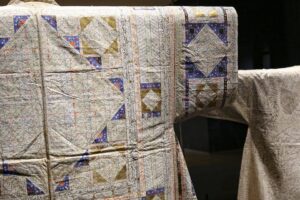Nikki Porcher was once a school teacher in visual arts in Atlanta. But the Black American woman also had a dream. Growing up, she had seen many businesses started by Blacks – especially women – fall to the three-year success curse, the most crucial period for any new entrepreneur. The result of her dream was the non-profit, Buy From A Black Woman, which is now considered one of the most innovative and successful initiatives by a Black woman in the US.
Porcher is yet to be a globally familiar name like other influential Black personalities like Martin Luther King Jr, Rosa Parks, Harriet Tubman, Mary McLeod Bethune and Malcolm X. There are many other African Americans whose contributions in different fields have not received the recognition they deserve.
In this context, Black History Month – celebrated every year in February – provides an opportunity for Americans worldwide to recognise and honour the contribution of Black Americans to the US.
Many African Americans believe that their history is gradually being erased, so each day of Black History Month is taken as an opportunity to educate the public about various Black figures who have significantly impacted society yet went unnoticed.
The celebration, also known as African American History Month, grew out of ‘Negro History Week’, an initiative spearheaded by eminent African Americans such as Carter G. Woodson and others.
Since 1976, every US president has formally proclaimed February as Black History Month. Several nations worldwide, including Canada and the United Kingdom, also dedicate a month to commemorating African history.
The torchbearers
The story of Black History Month began in 1915, half a century after the Thirteenth Amendment to the US Constitution was enacted, ending slavery in the aftermath of the 1861 Civil War.
In September 1915, Harvard-trained historian Carter G. Woodson and the well-known minister Jesse E. Moorland established the Association for the Study of Negro Life and History (ASNLH), an organisation devoted to researching and promoting accomplishments by Black Americans and other persons of African origin.
A national Black History week was sponsored in 1926 by the organisation that is now known as the Association for the Study of African American Life and History (ASALH), which designated the second week of February to coincide with Abraham Lincoln’s and Frederick Douglass’s birthdays. The event sparked local celebrations, history clubs, plays, and lectures in towns and schools nationwide.
Mayors in cities all across the nation started proclaiming ‘Negro Heritage Week’ on an annual basis in the decades that followed. By the late 1960s transformed into Black History Month on many college campuses, partly because of the civil rights movement and the Black Awakening of the 1960s, which substantially increased African Americans’ awareness of the significance of Black history.
In 1976, United States 38th President Gerald Ford officially recognised Black History Month, calling upon the public to “seize the opportunity to honour the too-often neglected accomplishments of Black Americans in every area of endeavour throughout our history”.
A century later, what began as a week-long observance has grown into a global, month-long celebration of black achievements, history, and culture.
Today, Black History Month is a time to recognise the contributions and legacy of African Americans throughout American history and society, including those who were leaders in business, politics, science, culture, and more.
2023 Theme
Carter G. Woodson, while establishing Negro History Week, decided to provide a different theme each year to focus the attention of the public on essential developments that merit emphasis.
This year’s theme, ‘Black Resistance,’ was chosen in an effort to highlight the African Americans’ resistance against historical and current struggles in all of its manifestations.
These initiatives have promoted the right to a dignified, self-determined existence in a just, democratic society within as well as outside the political boundaries of the United States.
In an attempt to nurture and safeguard Black lives and the autonomy of their physical and intellectual bodies, Black-led organisations and associations have successfully lobbied, litigated, enacted laws, and protested.
Together with other platforms, Black religious institutions served as meeting places for Black communities to plan acts of resistance, as sources of motivation for people to join movements, and provided a haven in times of need.
Radio shows, podcasts, newspapers, and other media sources were created to raise awareness of the many causes and actions (i.e. Chicago Defender, Chicago Bee, the Afro, The California Eagle, Omaha Star, the Crisis, etc.).
Ida B. Wells, an American investigative journalist, utilised the media to fight the evil of lynching. These channels played a crucial role in communicating the achievements and difficulties of resistance movements.


















Be First to Comment